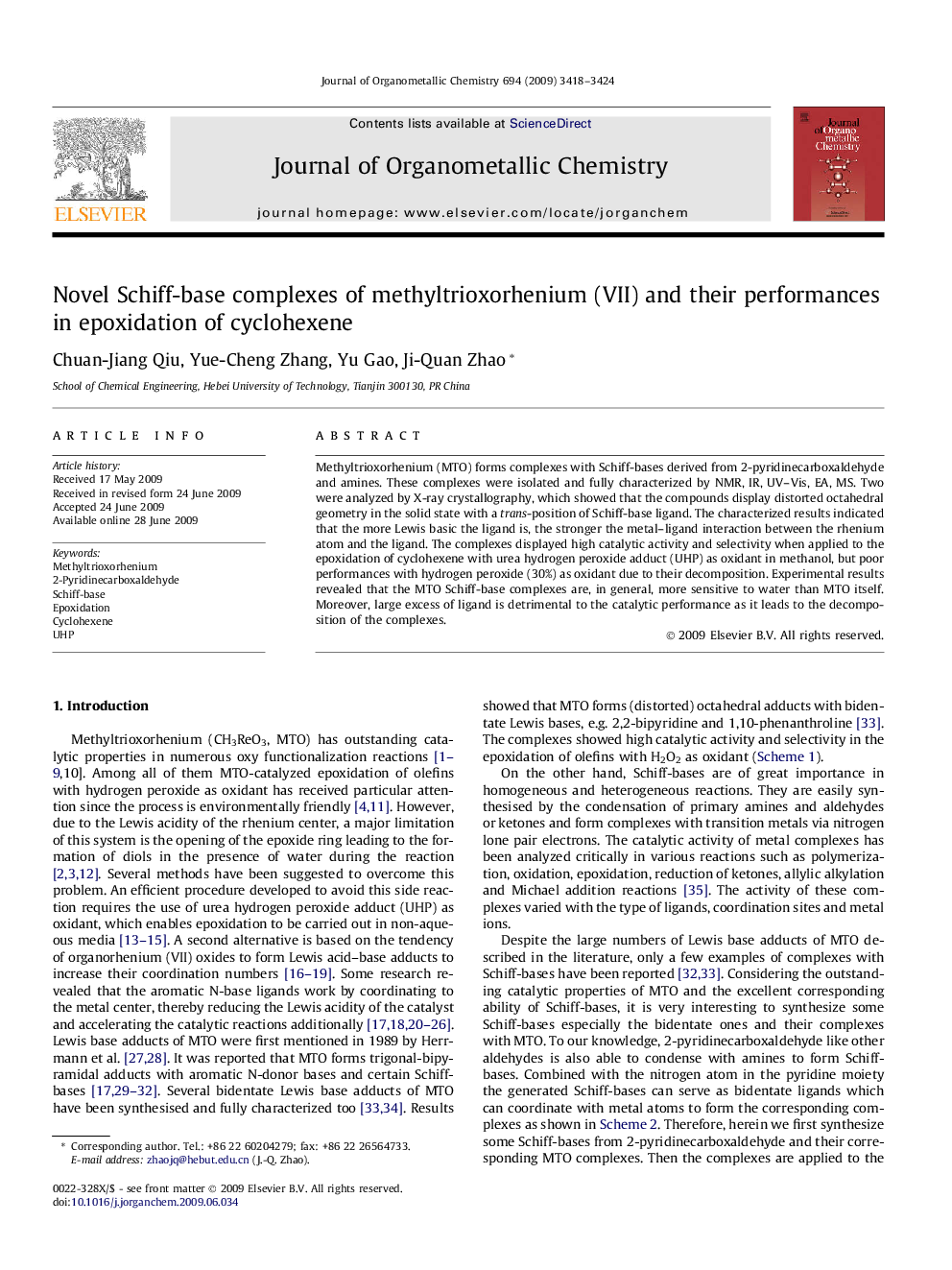| Article ID | Journal | Published Year | Pages | File Type |
|---|---|---|---|---|
| 1327203 | Journal of Organometallic Chemistry | 2009 | 7 Pages |
Methyltrioxorhenium (MTO) forms complexes with Schiff-bases derived from 2-pyridinecarboxaldehyde and amines. These complexes were isolated and fully characterized by NMR, IR, UV–Vis, EA, MS. Two were analyzed by X-ray crystallography, which showed that the compounds display distorted octahedral geometry in the solid state with a trans-position of Schiff-base ligand. The characterized results indicated that the more Lewis basic the ligand is, the stronger the metal–ligand interaction between the rhenium atom and the ligand. The complexes displayed high catalytic activity and selectivity when applied to the epoxidation of cyclohexene with urea hydrogen peroxide adduct (UHP) as oxidant in methanol, but poor performances with hydrogen peroxide (30%) as oxidant due to their decomposition. Experimental results revealed that the MTO Schiff-base complexes are, in general, more sensitive to water than MTO itself. Moreover, large excess of ligand is detrimental to the catalytic performance as it leads to the decomposition of the complexes.
Graphical abstractMethyltrioxorhenium (MTO) forms complexes with Schiff-bases derived from 2-pyridinecarboxaldehyde and amines. These complexes were isolated and fully characterized by NMR, IR, UV–Vis, EA, MS. Two were analyzed by X-ray crystallography, which showed that the compounds display distorted octahedral geometry in the solid state with a trans-position of Schiff-base ligand. The characterized results indicated that the more Lewis basic the ligand is, the stronger the metal–ligand interaction between the rhenium atom and the ligand. The complexes displayed high catalytic activity and selectivity when applied to the epoxidation of cyclohexene with urea hydrogen peroxide adduct (UHP) as oxidant in methanol, but poor performances with hydrogen peroxide (30%) as oxidant due to their decomposition. Experimental results revealed that the MTO Schiff-base complexes are, in general, more sensitive to water than MTO itself. Moreover, large excess of ligand is detrimental to the catalytic performance as it leads to the decomposition of the complexes.Figure optionsDownload full-size imageDownload as PowerPoint slide
